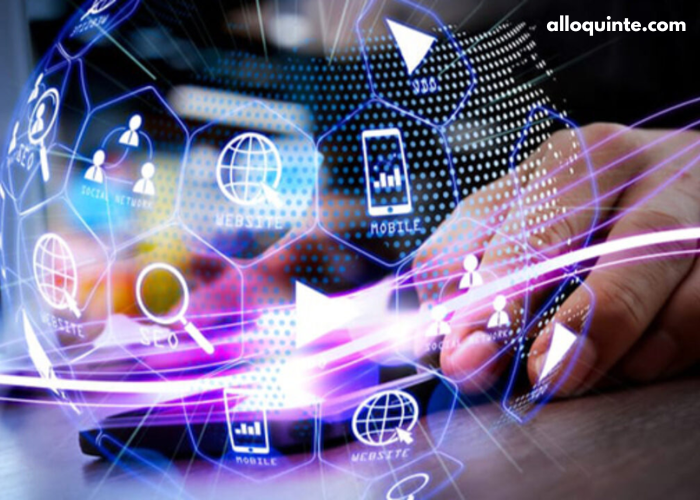The world is undergoing a digital transformation at an unprecedented pace. From the way we communicate and conduct business to how we access information and entertain ourselves, technology has woven itself into the fabric of our daily lives. As we stand at the threshold of a new era, it’s essential to explore the digital frontiers that lie ahead and understand how they will shape our future. In this article, we will delve deep into the evolving landscape of technology, examining the trends and innovations that will define the tech landscape of tomorrow.
The Era of Artificial Intelligence
Artificial Intelligence (AI) has already made significant strides in various domains, and it is poised to become even more prominent in the coming years. AI technologies, such as machine learning and natural language processing, are being integrated into a wide range of applications, from virtual assistants like Siri and Alexa to autonomous vehicles and medical diagnostics.
One of the key developments in AI is the rise of neural networks and deep learning. These technologies have enabled AI systems to process vast amounts of data and make increasingly accurate predictions and decisions. As AI continues to advance, it will play a pivotal role in sectors like healthcare, finance, and manufacturing, optimizing processes and driving innovation.
However, with the growth of AI comes ethical and regulatory challenges. Concerns about bias in AI algorithms, privacy issues, and the potential for job displacement need to be addressed. Striking a balance between technological advancement and ethical considerations will be a crucial aspect of navigating the digital frontiers.
The Internet of Things (IoT) and Connectivity
The Internet of Things (IoT) is a network of interconnected devices that can communicate and share data with each other. From smart homes and cities to industrial applications, IoT has the potential to revolutionize how we live and work. In the near future, it’s expected that billions of devices will be connected to the internet, creating a vast ecosystem of data and automation.
IoT offers numerous benefits, including increased efficiency, improved resource management, and enhanced convenience. Smart cities, for example, can use IoT to optimize traffic flow, reduce energy consumption, and enhance public services. In healthcare, IoT devices can monitor patients’ vital signs in real-time, enabling faster responses to medical emergencies.
Nevertheless, the proliferation of IoT also raises security concerns. With more devices connected to the internet, the attack surface for cybercriminals expands. Ensuring the security of IoT devices and networks will be a paramount concern in the tech landscape of tomorrow.
Blockchain and Decentralization
Blockchain technology, initially developed for cryptocurrencies like Bitcoin, has evolved into a versatile tool with applications beyond finance. Blockchain is a decentralized ledger that records transactions in a secure and transparent manner. It has the potential to disrupt various industries, including finance, supply chain management, and healthcare.
In finance, blockchain can streamline cross-border payments, reduce fraud, and increase transparency. Supply chains can use blockchain to track the provenance of products, ensuring authenticity and reducing counterfeits. Moreover, blockchain-based identity systems can enhance security and privacy, giving individuals greater control over their personal information.
Decentralization, a core principle of blockchain, challenges the traditional power structures by eliminating intermediaries. This shift towards decentralized systems can empower individuals and promote greater equity in various sectors. However, it also poses regulatory challenges, particularly in industries where intermediaries play a critical role.
Quantum Computing
Quantum computing represents a quantum leap in computational power. While traditional computers use bits to represent data as either 0 or 1, quantum computers use qubits, which can exist in multiple states simultaneously. This parallelism allows quantum computers to solve complex problems exponentially faster than classical computers.
Quantum computing has the potential to revolutionize fields like cryptography, materials science, and drug discovery. For example, it can break currently unbreakable encryption methods, paving the way for more secure communication. It can also simulate molecular structures with unparalleled accuracy, leading to the discovery of new materials and drugs.
However, quantum computing is still in its infancy, facing challenges related to stability and error correction. As it matures, it will redefine what is possible in the world of computing, opening up new frontiers of research and innovation.
Augmented and Virtual Reality
Augmented Reality (AR) and Virtual Reality (VR) are transforming how we interact with digital content and the physical world. AR overlays digital information onto our real-world environment, while VR immerses users in a completely digital environment.
AR is being applied in various sectors, from gaming and education to healthcare and manufacturing. Companies like Apple and Google are investing heavily in AR technologies, envisioning a future where AR glasses become an integral part of our daily lives. In healthcare, AR can assist surgeons during complex procedures, providing real-time data and guidance.
VR, on the other hand, is enhancing entertainment experiences and offering new possibilities in education and training. VR simulations can train pilots, doctors, and astronauts in realistic environments without real-world risks. As VR technology becomes more accessible and affordable, it will find applications in diverse industries.
Renewable Energy and Sustainability
The digital frontiers of tomorrow are inextricably linked with sustainability. The tech industry is increasingly aware of its environmental footprint and is actively seeking solutions to reduce it. Renewable energy sources like solar and wind power are being harnessed to run data centers, and energy-efficient designs are becoming standard in hardware manufacturing.
Artificial intelligence is also playing a role in optimizing energy consumption. AI algorithms can analyze energy usage patterns and make real-time adjustments to reduce waste. Additionally, blockchain technology is being used to create transparent and traceable supply chains for renewable energy, ensuring its authenticity and sustainability.
Tech companies are setting ambitious sustainability goals, from achieving carbon neutrality to reducing electronic waste through recycling initiatives. As the digital landscape evolves, it will be crucial to prioritize sustainable practices to mitigate the environmental impact of technology.
Cybersecurity in the Digital Age
With the increasing reliance on technology, cybersecurity has become a top priority. Cyberattacks can have devastating consequences, from data breaches and financial losses to compromising national security. As the digital frontiers expand, the threat landscape also evolves, requiring innovative approaches to cybersecurity.
Artificial intelligence is being used in both offensive and defensive cybersecurity strategies. AI-powered tools can detect and respond to threats faster than humans, but they can also be used by cybercriminals to automate attacks. The cat-and-mouse game between cybersecurity professionals and hackers will continue to escalate.
Moreover, the growing complexity of digital systems and the interconnectivity of devices make securing cyberspace a daunting challenge. Governments and organizations must collaborate to establish robust cybersecurity frameworks and regulations to protect critical infrastructure and sensitive data.
The Future of Work
The digital frontiers are reshaping the way we work. Remote work, accelerated by the COVID-19 pandemic, has become the new norm for many employees. Collaboration tools, cloud computing, and digital communication platforms have made it possible for teams to work from anywhere in the world.
The future of work will be characterized by greater flexibility and a focus on outcomes rather than physical presence. Automation and AI will augment human capabilities, leading to the redesign of job roles and the development of new skills. Lifelong learning will become essential as workers adapt to evolving technology and industry trends.
However, the shift to remote work also highlights the importance of digital inclusion. Access to technology and high-speed internet is not universal, and addressing the digital divide is critical to ensuring that all individuals have equal opportunities in the digital age.




